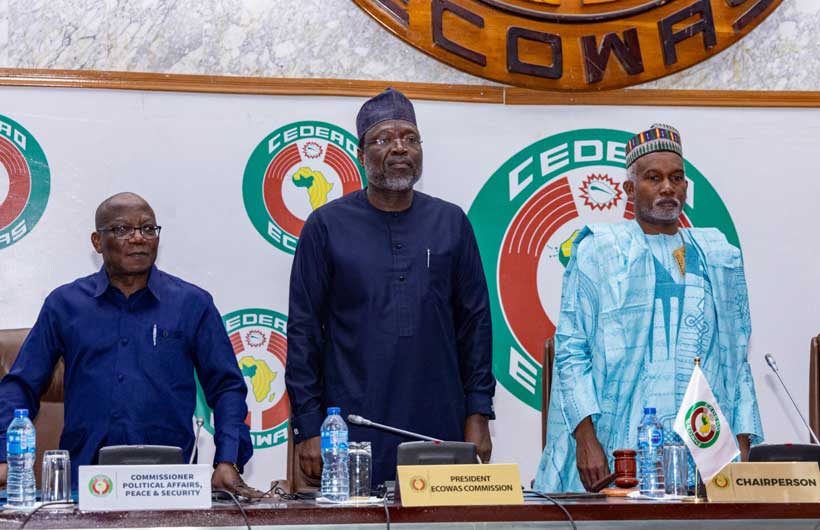The Economic Community of West African States (ECOWAS) held an extraordinary session to discuss President Macky Sall’s decision to postpone elections in Senegal, just a week after Burkina Faso, Mali, and Niger declared their withdrawal.
Omar Alieu Touray, president of the ECOWAS Commission, stated that it was “the time we have been most challenged,” and that the crisis in Senegal was a “worrying development.”
He urged the bloc to remain united as he addressed the ECOWAS Mediation and Security Council in Nigeria’s capital, Abuja.
Senegal’s foreign and defense ministries were there, but delegates from Burkina Faso, Mali, Niger, and Guinea, which had all been suspended from ECOWAS due to coups, were not.
Ministers were to undertake secret discussions before ECOWAS issued its final statement.
Crisis in Senegal
Senegal fell into its biggest political crisis in decades this weekend when Sall postponed the February 25 election just hours before it was scheduled to begin.
On Monday, lawmakers voted nearly unanimously in favor of the delay, but only after security officers invaded the chamber and removed some opposition members who couldn’t vote.
Observers voiced concern over events in one of ECOWAS’s most prominent and stable members, raising concerns about potential regional consequences.
ECOWAS, the United States, and the European Union have urged Senegal to stick to its election schedule, but opponents have questioned the organization’s influence over its increasingly recalcitrant member states.
In a statement issued Tuesday, ECOWAS warned Senegal against jeopardizing “peace and stability” during difficult times in West Africa, but it was unclear what the bloc would do if Sall ignored the warning.
Burkina Faso, Mali, and Niger announced their united exit last month, causing a diplomatic dilemma for the union, which had previously had 15 members.
According to a foreign ministry memo obtained by AFP, Mali has reaffirmed its exit “without delay,” stating that it is not bound by the organization’s one-year exit deadline.
The turbulence has called into question the bloc’s broader role, particularly after its threat of military action in Niger last year faded, with little sign that the country’s deposed president is any closer to being reinstalled.
With its reputation at stake, ECOWAS’ response to the ongoing political upheaval is being widely monitored.
ECOWAS can apply trade restrictions, as it did after the coups in Mali and Niger.
However, the sanctions have had a significant impact on citizens, and military regimes continue to operate.
Experts also believe that, while Senegal is playing with fire, it is still a long way from the point where ECOWAS will levy financial sanctions.
“Sanctions cannot come in at this point,” Idayat Hassan of the US Center for Strategic and International Studies told AFP.
“What can come in is more mediation,” she said, expressing trust in the bloc’s back channel diplomacy.
ECOWAS has intervened militarily in the past, most notably in The Gambia in 2017, when President Yahya Jammeh refused to step down following electoral defeat.
However, Bamidele Olajide, a politics lecturer at the University of Lagos, stated that it would be “not wise for anybody now to advance military action” in the region, expressing faith in ECOWAS diplomacy.
